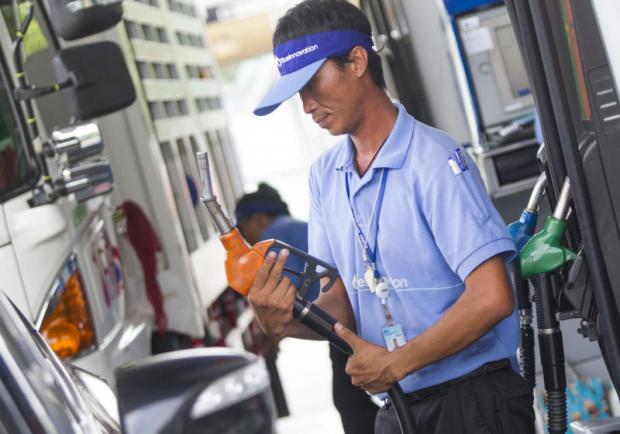
The Department of Energy Business (DOEB) plans to increase the proportion of palm-based biodiesel to absorb the surplus in crude palm oil.
B10 will be available in the local automotive market by early 2019 to replace B7 biodiesel.
B7 is 7% palm-based biodiesel blended with 93% diesel, but the government is looking to increase the content of methyl ester made from crude palm oil to 10%.
The DOEB is confident car assemblers and motorists will not be affected by the new B10 biodiesel regime once it goes into effect.
Last Friday, the DOEB kicked off an official B10 trial with a State Railways of Thailand (SRT) train operating on the 30-kilometre Ban Laem-Mae Klong route in Samut Sakhon and Samut Songkhram.
Before that, PTT Plc also conducted a trial test with a B10-compatible vehicle engine.
Director-general Witoon Kulcharoenwirat said the DOEB is confident that the trials will bear out the fuel's viability.
Energy policymakers are discussing the possibility of enforcing the use of B10 with oil traders nationwide and expect to finalise that feedback process by year-end.
"Once the B10 is in commercial use at petrol stations nationwide, 43% of the surplus crude palm oil will be absorbed, with daily consumption increasing from 4.62 million litres per day from B7 to 6.6 million," Mr Witoon said.
"A tentative agreement has been reached with European car assemblers, but a response has yet to be issued from Japanese and US bands."
The additional methyl ester needed for B10 will cost 8-12 satang more per litre on a trial production scale, but it should be on a par with B7 once it goes commercial.
Mr Witoon said the next step will be the B20 trial, which will be conducted by the Department of Alternative Energy Development and Efficiency (DEDE).
In 2012, the DEDE conducted a trial for B20 with an old truck engine, but the tests came to a halt because the palm oil price at that time was too high.
Diesel consumption volume in Thailand reached a new high of 65-66 million litres per day in 2017, when the global oil price collapsed below US$40 per barrel.
PTT is the sole B10 contributor to the SRT.
Jiraphon Kawswat, senior executive vice-president for oil business at PTT, said the test is expected to be done over the next six months, with a report conducted every 12,000km.
The move is intended to help curb the import of crude oil, replacing it with locally made biodiesel.